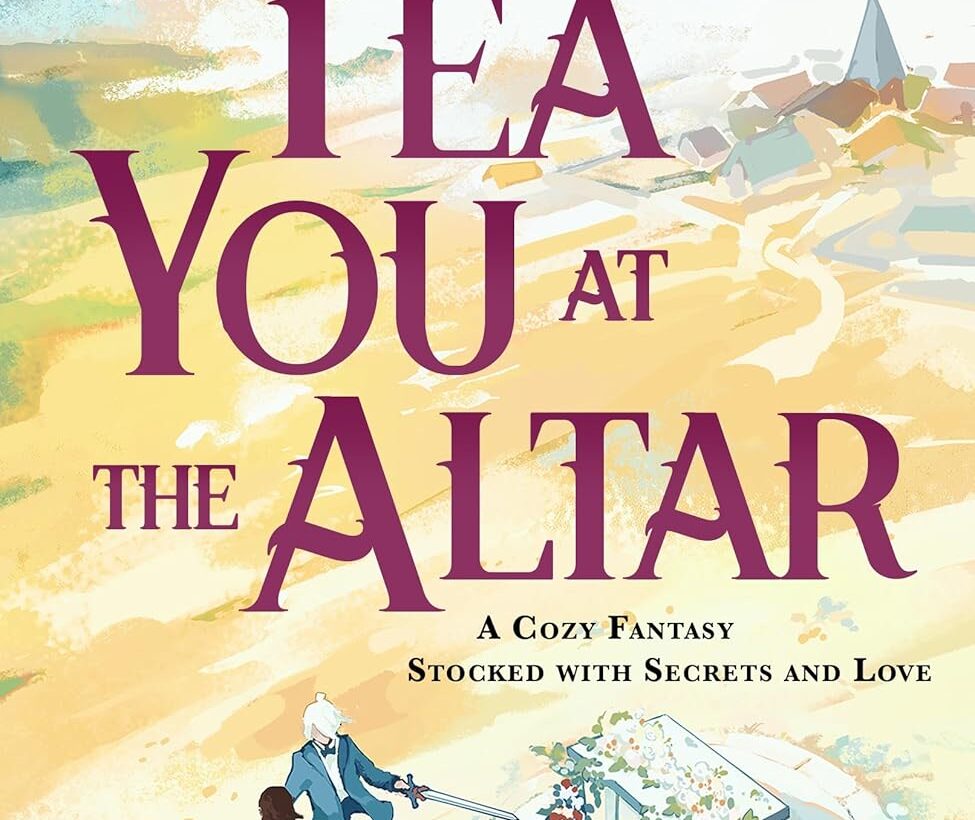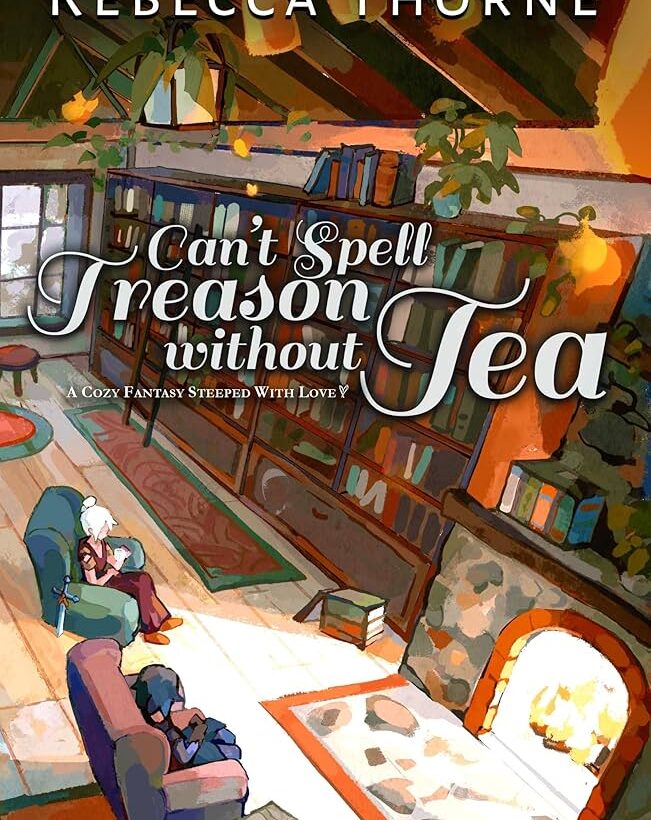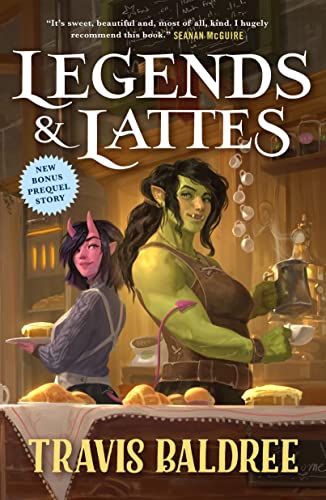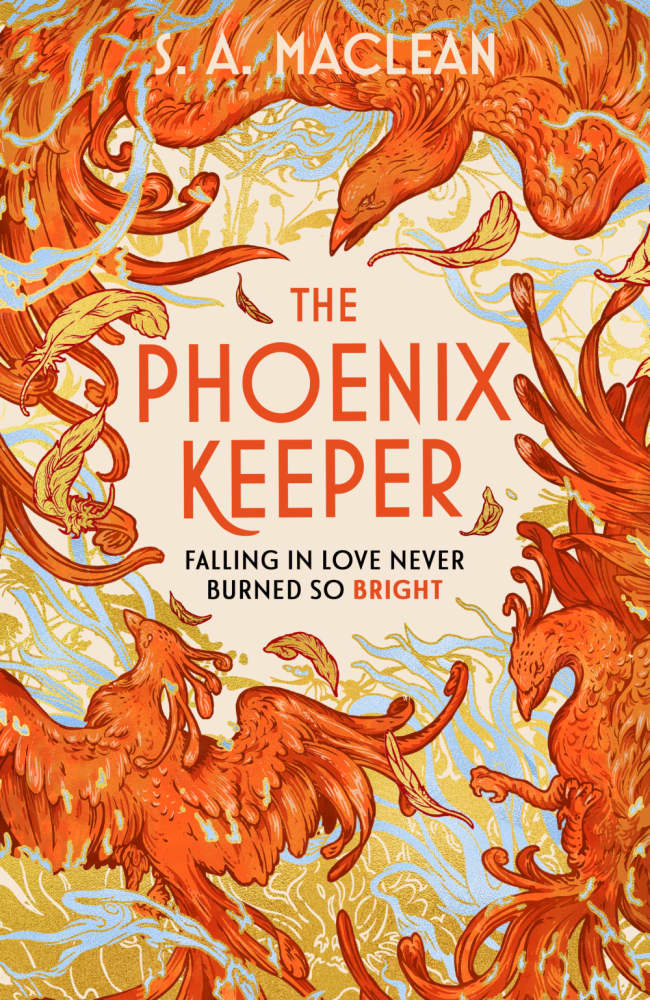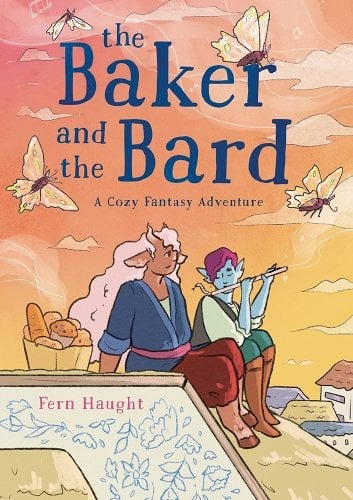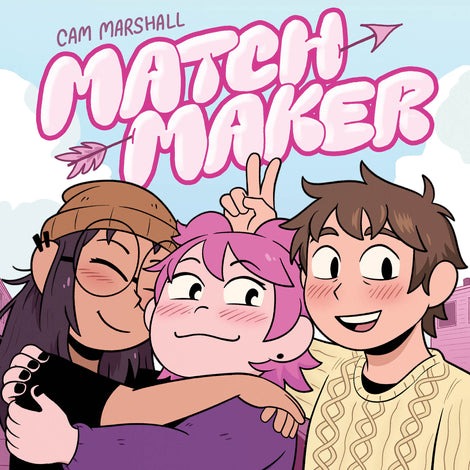Tea You at the Altar is the third book in the Tomes & Tea cozy fantasy series, and it follows Kianthe and Reyna as they plan their wedding… and possibly a coup. (This review contains spoilers for books one and two.) I really enjoyed Can’t Spell Treason Without Tea, but I thought the second bookRead More
Soothe Your Sapphic Soul with Can’t Spell Treason Without Tea by Rebecca Thorne
With the weather getting colder and the… general state of the world, I’ve been gravitating towards cozy fantasy lately, which is why I finally picked up a book that’s been on my TBR for far too long: Can’t Spell Treason Without Tea by Rebecca Thorne. This is the first in the Tomes & Tea series,Read More
Sapphic Romance and Found Family in a Magical Cafe: Legends & Lattes by Travis Baldree
This was so cosy and heartwarming to read. I’ve been trying to get into the fantasy genre, and for those of us who want to ease into the genre slowly and gently, I’d recommend you pick this book up. The book commences with Viv, who has left behind a past full of blood, fighting, andRead More
Queer Cozy Fantasy with Magical Animal Shenanigans: The Phoenix Keeper by S.A. MacLean
Buy this from Bookshop.org to support local bookstores and the Lesbrary! I’m animal lover who’s always looking for more cozy queer fantasy, so this book seemed tailor made for me. It follows Aila, a phoenix keeper at a magical zoo who is trying to restart their phoenix breeding program to help bring the phoenixes backRead More
A Book and Herb Review: Basil and Oregano by Melissa Capriglione
Buy this from Bookshop.org to support local bookstores and the Lesbrary! Basil and Oregano is a sweet, safe, very cute and inclusive graphic novel about two girls who fall in love while competing to become top student at their magical cooking school. While chock-full of softness and cuteness, the story also includes serious themes thatRead More
A Queer Futuristic Take on a Classic Mystery Setup: The Imposition of Unnecessary Obstacles By Malka Older
Buy this from Bookshop.org to support local bookstores and the Lesbrary! I love sapphic novellas with an unconventional blend of genre elements—so of course, after reading The Mimicking of Known Successes by Malka Older last year, I eagerly awaited the sequel, The Imposition of Unnecessary Obstacles. I had the sense I’d enjoy it even more as a series,Read More
A Comforting Queer Cozy Fantasy Comic: The Baker and the Bard by Fern Haught
Buy this from Bookshop.org to support local bookstores and the Lesbrary! One of my favourite micro niches is queer cozy fantasy middle grade comics—which mostly just means I adore the Tea Dragon series by K. O’Neill. I have a print from that series on my wall. I have the box set. I have the cardRead More
A Cozy Queer Comic of Community: Matchmaker by Cam Marshall
Buy this from Bookshop.org to support local bookstores and the Lesbrary! This was a surprise, last-minute entry in my list of favourite reads of 2023! I stumbled on this while researching new releases for Our Queerest Shelves, and I was pleasantly surprised to see it was by a local British Columbia author/artist! I requested itRead More
A Cozy Queer Bookstore Fantasy: Bookshops & Bonedust by Travis Baldree
Bookshop.org Affiliate Link This is a prequel to Legends & Lattes, which I adored. It’s a cozy fantasy novel with low stakes and impeccable vibes. Let me skip the conclusion of this review: if you liked the first book, I can’t imagine you won’t also like this one. And if you didn’t like Legends &Read More
A Fantasy of Community: Legends & Lattes by Travis Baldree
Buy this from Bookshop.org to support local bookstores and the Lesbrary! Legends & Lattes has been reviewed at the Lesbrary before, and it’s certainly gotten a lot of praise online in general, so why do I feel the need to add my own positive review to the mix? I think it’s because the reason IRead More
